By Shai Lagarde
December 30, 2020
Around this time last year, Crash Landing on You began streaming two episodes a week on Netflix. For longtime K-Drama fans, it had all the makings of a classic hit: Hyun Bin and Son Ye-jin, both established hallyu stars. A compelling premise — South Korean chaebol heiress meets North Korean captain — set in exotic locations. Memorable supporting characters. A nice balance of romance, comedy, drama, suspense, action, and fantasy elements, scored by a catchy soundtrack.
Its 16th and final episode premiered in February, a month before the World Health Organization declared COVID-19 a pandemic and many parts of the world including the Philippines were placed under lockdown. But much like Yoon Se-ri’s paraglider that flew across the DMZ and thrust her into a different life, no one could have predicted the trajectory of CLOY — and K-culture in general — in 2020.
Filipinos have been riding the hallyu (Han = Korea, ryu = wave) since 2003, when GMA Network first introduced koreanovelas like Endless Love: Autumn in My Heart, Winter Sonata, Jewel in the Palace, Full House, and Stairway to Heaven (which was heavily referenced in CLOY, much to the delight of fans).
Kapuso fans surely have a fond memory of Jewel In The Palace, a sageuk (historical drama) based on Dae Jang Geum (“The Great Jang Geum”), a royal cook who became the first woman royal physician of Korea during the Joseon Dynasty. Originally produced in 2003, it aired in 91 countries and is one of the dramas responsible for the first hallyu boom. As fans flocked to South Korea, the government built a Dae Jang Geum theme park to introduce Korean history and traditional cuisine. Lee Young-ae, the actress who played Jang Geum, remains one of the highest-paid in Korea at $83,000 per episode.
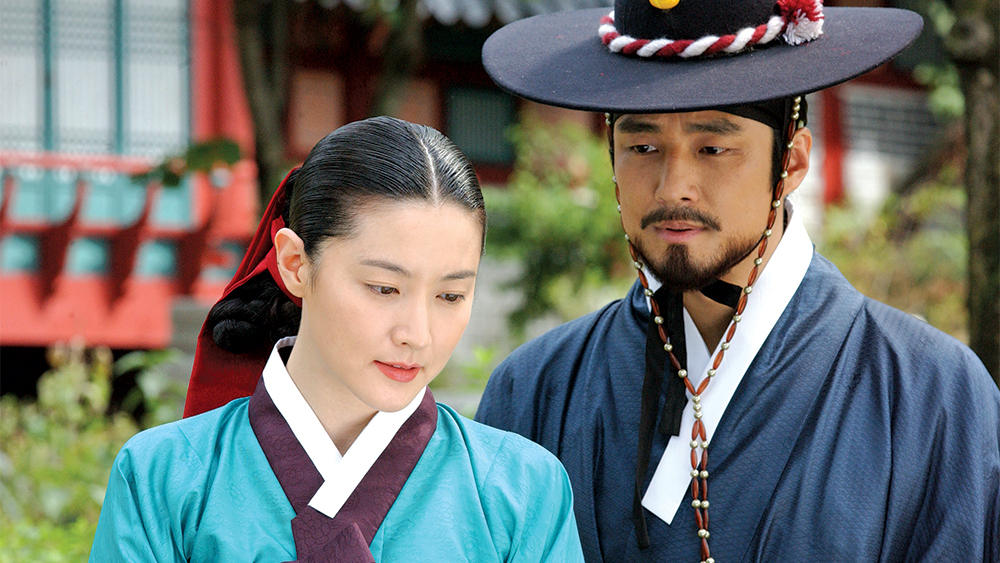
Jewel in the Palace was one of the first dramas responsible for the original hallyu boom. MBC
In the 2019 Hallyu white paper of the Korean Foundation for International Cultural Exchange (KOFICE), researchers say this first boom was centered more on fans who followed dramas and the actors that starred in them.
The turn of the decade in 2010 ushered in the second wave: hallyu in the social media age. This was centered more on fans who admired K-Pop groups such as Girls’ Generation, 2NE1, Super Junior, and Big Bang, as YouTube and other social networking sites made their music and videos more globally accessible. PSY’s “Gangnam Style” became the first music video to ever hit 1 billion views on December 21, 2012 and remains in the Top 10 most-viewed YouTube videos of all time.
The third hallyu boom began in 2017. KOFICE dubs it “Life Hallyu,” noting how it “has quietly and naturally permeated through food, beauty, fashion trends, and everyday life” and no longer “a monopoly of minority enthusiasts like the first and second hallyu.”
Take for example the two-toned lipstick and cushion compact used by Song Hye-kyo as Dr. Kang Mo-yeon on Descendants of the Sun, which broke global sales records for the beauty brands that sold them. While DOTS received some flak for having too many product placements, all the featured brands and food (such as samgyetang, a chicken soup similar to tinola) did experience a significant surge in popularity and sales. Song Hye-kyo has been an established hallyu star since her breakout role on Endless Love: Autumn in My Heart (2000).
Indeed, Korean dramas have evolved in the past few years, exploring novel premises and genre crossovers, as well as incorporating different aspects of Korean culture into the storytelling. Korean food has become a staple for many Pinoys, thanks to the near-ubiquitous shots of samgyeopsal with soju, bibimbap surrounded by ban chan (side dishes), or chimaek (fried chicken paired with draft beer).
K-Pop acts, particularly Big Hit’s BTS, YG’s Blackpink, JYP’s Twice, and SM’s EXO and Red Velvet have continued to dominate the charts alongside K-Drama OST regulars like Davichi, Crush, Gaho, 10cm, and Mamamoo.
Korean makeup and skincare products are such a hit, established global brands and Filipino celebrities alike got in on the trend by developing their own K-beauty-inspired product lines.

The two-toned lipstick and cushion compact used by Song Hye-kyo as Dr. Kang Mo-yeon on Descendants of the Sun broke global sales records. KBS
It was a big year for Korean cinema as well, with Bong Joon-ho’s Parasite winning in film awards left and right. After its 2019 Cannes Palme d’Or victory, Parasite started 2020 with a Golden Globe for Best Foreign Language Film, a Screen Actors' Guild Award for Outstanding Performance by a Cast in a Motion Picture, four Academy Awards: for Best Picture, Best International Feature Film, Best Director, and Best Original Screenplay, and three awards including the Daesang (Grand Prize) at the 2020 Baeksang Awards, among many others.
It was a historic win in more ways than one. Bong Joon-ho and other South Korean filmmakers have been producing groundbreaking films for decades, yet until Parasite, it seemed the only way to get mainstream attention was to take from these works and remake them in Hollywood (The Lake House, My Sassy Girl, Oldboy). Parasite succeeded in showing that a great film is a great film, notwithstanding the one-inch-tall barrier of subtitles.
K-culture was gaining global traction. But in the time of lockdowns, the speed with which it would take over Pinoy lives turned out to be nothing short of phenomenal.
“It’s been quite a journey, from hating K-Dramas last year, to giving it a chance this year, and my full indoctrination into hallyu and becoming a full-blown, card-carrying BTS fan in the process,” says Mel Lozano, who co-hosts the entertainment podcast Endslate. The show dedicated two episodes this year to K-culture. The first, in April at the height of CLOY’s popularity, explored K-Dramas and what makes them work. Their yearend wrap-up, “K-Dramas and K-Pop Saved 2020,” looks back at how drastically the entertainment landscape has changed.
Mel and her daughter Mira became ARMY (BTS fans), finding comfort and inspiration in their music, content, and philanthropic efforts. “It’s been such a depressing year, and right in the middle of it, there’s ‘Dynamite.’ I don’t think anything as happy was released this year,” she adds. “My kid dragged my mom to Youtube to watch it. For a 7-year-old to show her grandma what she’s interested in, that this is her music? She really wanted to share it.”
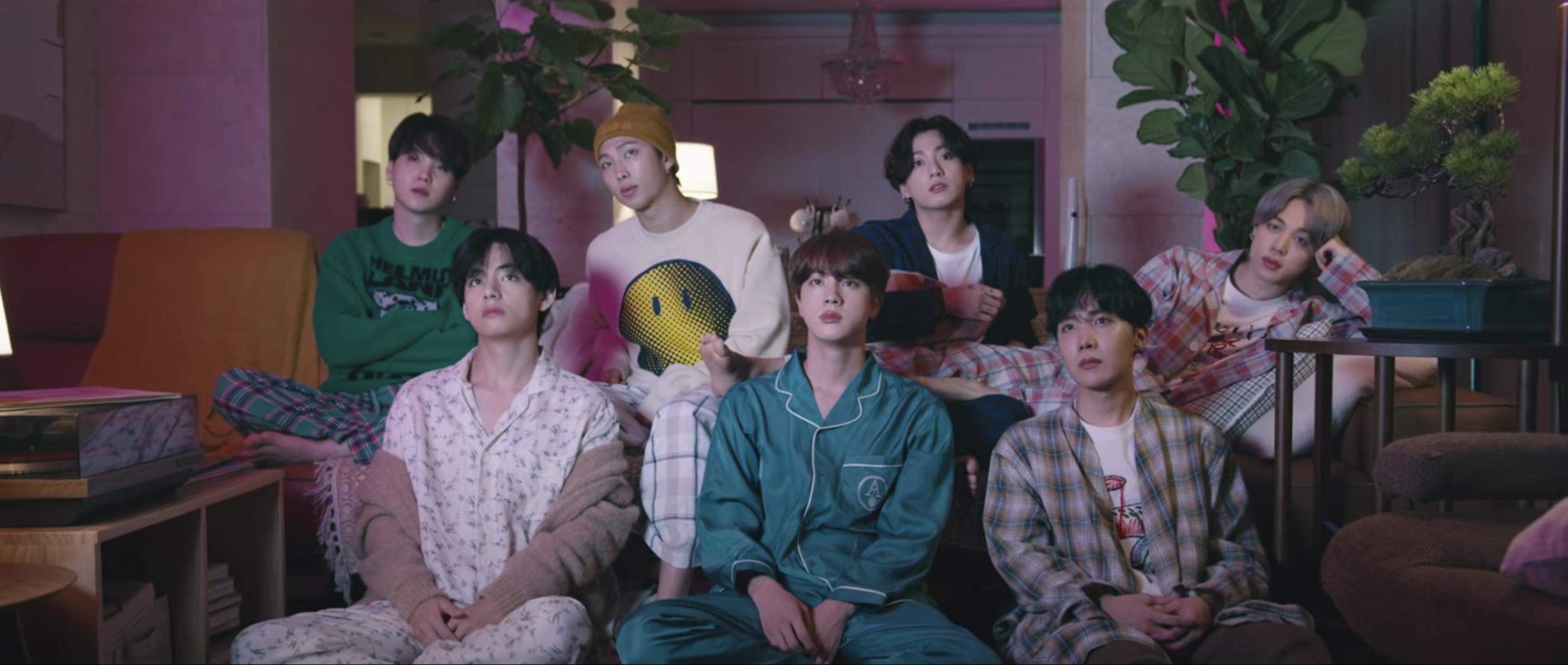
BTS’ latest album “BE” speaks of life in the COVID-19 pandemic. BIG HIT ENTERTAINMENT
BTS have been enjoying worldwide success for a few years now, with ARMY of all ages and walks of life — from young fans and their parents, to celebrities (Emma Stone, John Cena, Ansel Elgort, Alicia Keys, and Paulo Coelho to name a few), to philosophers and scholars. But it wasn’t until the pandemic that the group was catapulted to unprecedented heights. Researchers even have a name for it — the BTS Effect.
BTS stands for two things: Bangtan sonyeondan (bulletproof boy scouts) and Beyond the Scene, names they obviously don’t take lightly. When their world tour was cancelled early this year due to COVID-19 travel restrictions, the seven boys refocused their efforts into connecting with their fans through the Internet with record-breaking virtual concerts, weekly vlogs, large-scale donation drives, advocacies, and of course, making music that reflected the times. Despite the setbacks and crises, “Life Goes On.”
BTS’ latest album “BE” speaks of life in the COVID-19 pandemic: “One day, the world stopped without any warning, streets erased of footsteps, and the way out is nowhere near in sight.” Suga, V, RM, Jin, Jungkook, J-hope and Jimin wanted the songs to reflect “mixed feelings of fear and anxiety mingled with the determination to overcome all this.” The album’s microsite is an immersive multimedia experience, showing the members in bedrooms that they’re stuck in, struggling to deal with the stress of quarantine.
It came as no surprise then when they swept up awards shows (including a Grammy nomination for “Dynamite,” the first K-Pop group to receive one) and were named TIME's Entertainer of the Year for 2020.
Comparisons to The Beatles and One Direction are inevitable, but not exactly accurate considering these British bands originated from the traditionally dominant culture and did not have a language barrier to contend with — all of which makes BTS' accomplishments more impressive.
“There’s no contest, eh. It made so much sense,” says Ramon De Veyra, the Endslate podcast co-host and a pop culture critic. “Because if you’ve been following the records they’ve broken and their constant presence both in Korea and in the US media, there’s no other competitor.”
Film director and Endslate co-host Quark Henares, a self-confessed Blink (Blackpink fan), agrees. “BTS and Blackpink, the fandom of both have been steadily growing but this is the year they both released albums within months of each other. It really reached a massive eruption of K-Pop love,” he says. “Both fandoms, who were already rabid, were feeding that fire for that window that both bands released albums.”
Ramon thinks the South Korean government’s efficient COVID-19 response also helped BTS and other K-Pop acts dominate the pandemic year. “Their economy never had to shut down the way ours and the US did. Even though they had to impose certain restrictions, the churning out of content never really stopped,” he says. “In the absence of competition, I think a lot of people gravitated toward it and then the conversation started revolving around that.”
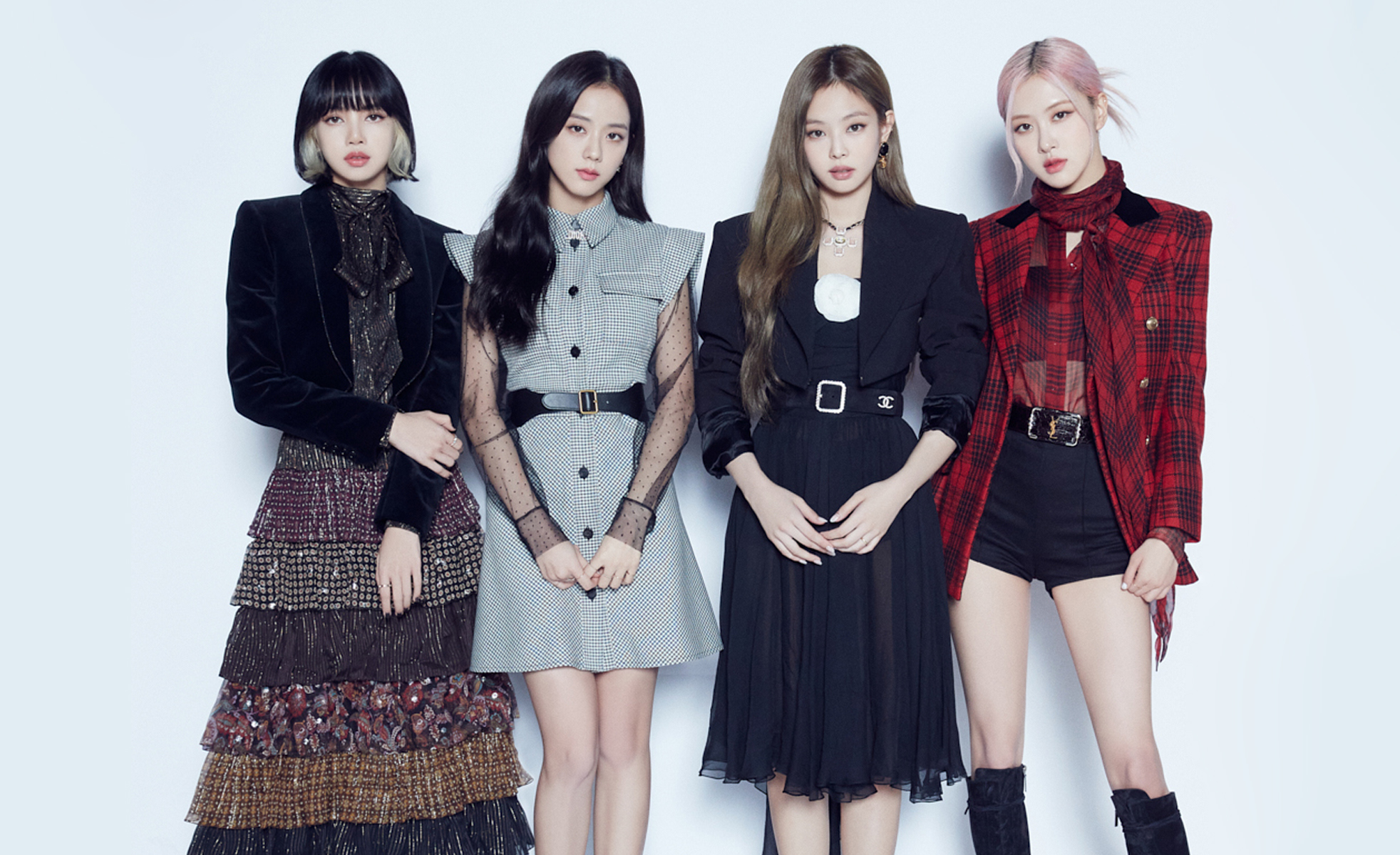
Despite the cancellation of their 2020 world tour because of the pandemic, it has been a productive year for Blackpink, which released its first album. YG ENTERTAINMENT
Among their contemporaries, Blackpink is perhaps the girl group most comparable to BTS in terms of international success, advocacies, and the ability to connect with fans worldwide while frequently paying homage to their Korean heritage. See: BTS’ “Idol” music video and Blackpink’s “How You Like That” performance on Jimmy Fallon, both featuring gugak (traditional Korean music) elements and modernized versions of the hanbok (traditional clothing).
Before the pandemic hit, the four-piece had been busy touring worldwide, doing guest appearances on American shows, and headlining Coachella as the first K-Pop girl group to perform at a US festival.
Their cancelled 2020 world tour led to Blackpink’s first album (simply called “The Album”) released in October. It features three collaborations: “Ice Cream” with Selena Gomez (co-written by Ariana Grande), “Lovesick Girls” with David Guetta, and “Bet You Wanna” with Cardi B. They were supposed to hold a virtual concert (named, you guessed it, "The Show") in late December, but a resurgence of COVID-19 cases in South Korea prompted them to move it to January.
If the appeal of BTS mainly lies in the narrative arc of authenticity, kindness, resilience and self-love that threads through their discography, Blackpink’s success can be largely attributed to a burgeoning industry practice known as localization.
“Localizing” K-Pop groups essentially means recruiting talent from outside of South Korea to expand their reach. Vocals and lead rapper Jennie grew up in New Zealand and moved back to Seoul for training. Lead vocalist Rosé auditioned in Sydney, Australia. Rapper and lead dancer Lisa is Thai, and had to learn Korean as a trainee. Ji-soo, vocals and “visual” (i.e. the most visually appealing member in a K-Pop group), is the only one born and raised in Korea, but is also fluent in Japanese.
Speaking four languages among them, Blackpink is four girls with four very distinct personalities, looks, and musical qualities, each appealing to a unique fanbase while at the same time perfectly complimenting each other as a team.
Emphasis on “team.” The Netflix documentary “Light Up The Sky” and Blackpink’s weekly vlogs show much they genuinely love and respect one another, and how serious they are about their craft. Their name, after all, is all about tempering the bubblegum-pop sound, pastel outfits and cutesy choreography that have defined majority of K-Pop girl groups with some pretty savage attitude. They served up as much with their 2020 hits “How You Like That,” “Lovesick Girls,” and even the relatively saccharine Selena Gomez collaboration, “Ice Cream.”
In the time of pandemic, K-Pop groups like BTS and Blackpink got on the radars of people who otherwise wouldn’t have gotten to check them out, and became a means of escape. “It’s like a window into an alternate dimension na walang problema,” says Ramon of a world where “no one’s seeking employment, everyone knows where their next meal is coming from, everyone likes each other, no bad vibes ever. It’s just a comfortable blanket, almost.”

Run-On premiered this month and figures to be another hit. Netflix
Like K-Pop, K-Drama has also been thriving beyond CLOY. Compared to 2019, viewership of Korean series on Netflix Philippines was up more than 350% in 2020.
Just a couple of years ago, there were only a handful of K-Dramas on the streaming service. But in November 2019, in what is a either a stroke of great luck or perfect timing, Netflix signed long-term production and distribution deals with Korean production companies Studio Dragon (Goblin, Legend of the Blue Sea, Mr. Sunshine, Memories of the Alhambra) and JTBC Content Hub (SKY Castle, Something in the Rain).
These partnerships led to 2020’s beloved K-Dramas, all of which are noticeably different in tone from the formulaic melodramas of previous eras. The King: Eternal Monarch, Lee Min-ho’s comeback project on parallel worlds, was the most popular according to Netflix Philippines. It’s Okay To Not Be Okay, a brave and timely tale on mental illness, stayed on the Top 10 for a whopping 103 days. Itaewon Class discussed the prevailing issues of discrimination against LGBTQIA+ and people of color (one of the characters is African-Korean), along with the importance of sticking to your convictions. The World of the Married broke ratings records. Hallyu star Kim Tae-hee’s lead role in Hi Bye, Mama! touched viewers. Hospital Playlist and Record of Youth presented slice-of-life stories that were inherently Korean and yet also universal, in the vein of the 2016 cult favorite, Reply 1988.
Bookending the year, of course, were Crash Landing On You — which also enjoyed an extended stay on the US Netflix Top 10 — and Start-Up, a story on failing upwards set in a fictional South Korean Silicon Valley, which gave fans a serious case of SLS (Second Lead Syndrome) and ignited intense debates of #TeamGoodBoy versus #TeamDoSan on social media.
“May zeitgeist talaga silang na-capture. Episode 9, I’ve never experienced getting the shakes. I don’t know if it’s an adrenaline rush. It was just a physical reaction na, ‘Oh my God, ang ganda ganda ganda nitong episode.’ The next day I watched it again, ” says Mel Lozano of Start-Up. Still, her No. 1 remains her gateway drama: “CLOY pa rin. I’ll never forget my first!”
Run-On premiered this month with new episodes weekly. The show is part-slice-of-life, part-social commentary. Im Si-wan (Misaeng) plays an athlete who stands up for what is right. Shin Se-kyung (Rookie Historian) plays a translator who wanted to be one because "There was this line in a movie that consoled me a lot. But if there were no subtitles, I never would've known its meaning. I too wanted to lay a bridge between the two languages."
What YouTube has done for K-Pop, Netflix (and its YouTube channel, The Swoon) has done for K-Dramas: provide access to a world of options its 158 million paid subscribers can get into, be it by genre, by actor, or by level of similarity to a series they’ve watched.
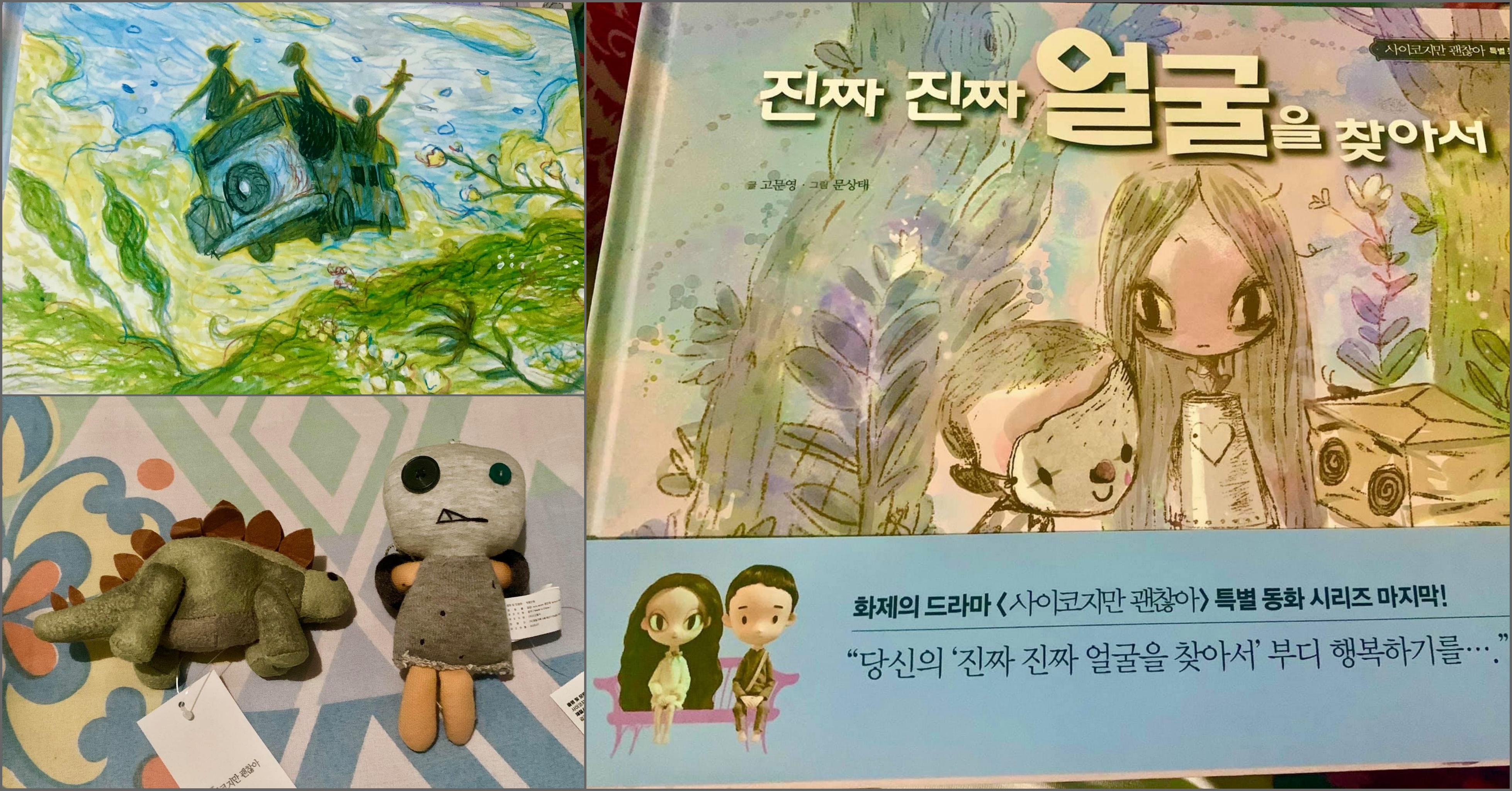
A fan's collection of merchandise and toys from It's Okay Not to Be Okay. Ge Vista
Beyond K-Pop and K-Dramas, “life hallyu” also made an impact, dominating the top 10 lists of most-searched terms in the pandemic, according to data from Google Philippines:
Surpassing COVID-related queries, the most-Googled tutorial of the year is for making dalgona coffee, the first of many food trends at the start of the lockdown. South Korean actor Jung il-woo coined the term after tasting whipped coffee and being reminded of dalgona, a type of honeycomb toffee.
All but three of the 10 most-searched TV shows are K-Dramas. Parasite and Train to Busan 2 are in the Top 10 Korean movies. Miracle In Cell No. 7 most likely refers to the 2019 Filipino movie — an adaptation of the 2013 Korean film.
Kaachi is a controversial group that debuted last April. Their agency calls them “the world’s first K-Pop girl group to debut from the UK,” but due to their origins, majority of K-Pop fans don’t consider them as such. The members are Venezuelan, Filipina-Spanish, British, and United Kingdom-based Korean, and they were formed in London — far removed from the grueling three to six years that actual K-Pop trainees typically have to spend before debuting. The group has also been accused of plagiarism and cultural appropriation. (In contrast, despite undergoing the same training in Korea, Filipino boy band SB19 categorizes itself as P-Pop while acknowledging their K-Pop influences.)
Also among the most-searched Korean personalities for the year are K-Drama leads Seo Yea-ji and Kim Soo-hyun (It’s Okay To Not Be Okay), Hyun Bin and Son Ye-jin (Crash Landing On You), Kim Go-eun (The King: Eternal Monarch) and Han So-hee (The World Of The Married). And when it comes to K-Dramas, CLOY still led the pack, followed by mostly Netflix productions.
Gerald Vista, a digital marketing specialist, binged SKY Castle (2018), The World of the Married (which broke SKY Castle's ratings records), and It’s Okay To Not Be Okay during the pandemic. He loved the last one so much he ordered the books and toys of the characters. “This is the first time I bought K-Drama merchandise,” he says. “I can’t help but talk about it with everyone I know who also watched. Maybe it shows how a good story can transform a casual viewer into an avid fan.”
The academe has also taken a keener interest. University of the Philippines-Diliman began to offer a K-Drama Analysis elective course and over 200 students scrambled to nab one of the 20 slots. Two more sections had to be added to accommodate the demand. A Netflix account was required for the course, as students should have already finished CLOY, Misaeng and Chicago Typewriter before the semester started.
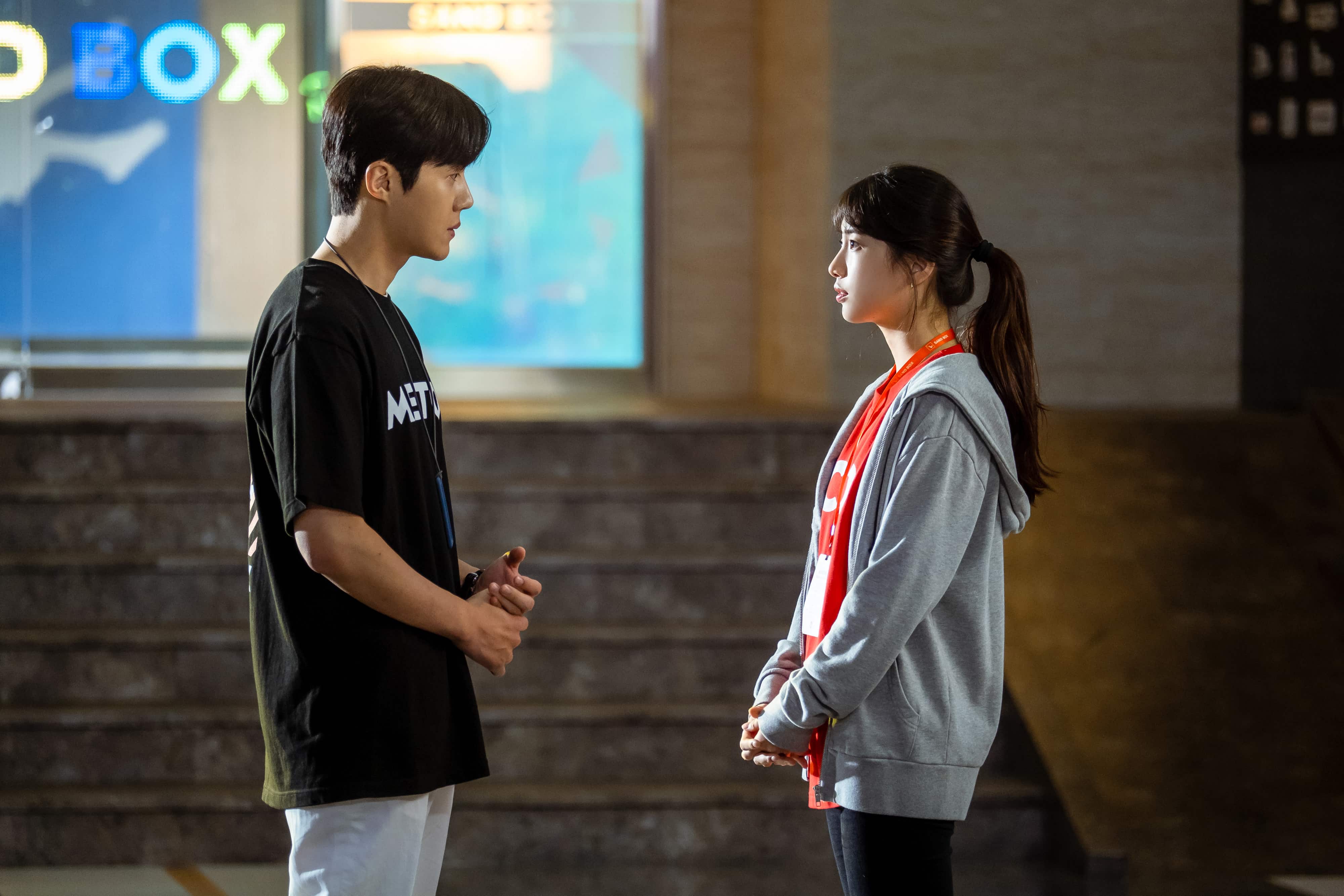
Start-Up was the subject of rabid viewership and intense social media debate. Netflix
Aside from being a big hit, Start-Up also serves to assure that K-Dramas won't be slowing down anytime soon, despite the pandemic. While production in other countries had to be halted, it was one of many K-Dramas shot amid COVID-19. Behind-the-scenes footage show the cast and crew observing health protocols, with filming mostly done in a bubble or in outdoor areas. Locations in Seoul include the man-made Nodeul Island on the Han River, the Yeouido river park, and an oil reservoir turned educational park. They also shot in Incheon’s Robot Land, a theme park that would be dedicated to promoting the study of robotics.
One of the best soundtracks this year is Start-Up's “Future” by Red Velvet. Not only is it such earworm; the lyrics too, are apt. “In an unknown dream, I felt like I saw a happy day again. Approaching tomorrow makes me anxious, but you can’t easily let go of me. I want to go through the hard times holding your hand.”
For many, K-culture did just that. The connections we’ve made — the unlikely friendships, the samgyeopsal cook-outs, the online watch parties and post-ep group chats — helped get us through 2020’s anxieties and uncertainties. No matter how the future shapes up, it has left an indelible mark on those who got to discover this whole new world.
We are Yoon Se-ri, confident in the path we’ve forged for ourselves until we were caught in a sudden storm and hurtling blindly toward unknown territory. Or we are Captain Ri Jeong-hyeok, resigned to a life of routine and social expectations until an unfamiliar surprise dropped in on us.
Life will just never be the same.